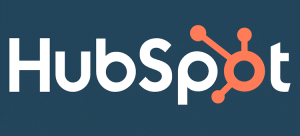Startups might get away with the business email as the only source of communication between the staff and clients. But as your business scales and the sales figure multiplies, the outdated solution won’t be effective in catering to the increasing queries and complaints.
You don’t want users to wait for days to get answers to their simple questions. Your business needs a killer ticketing system that streamlines ticket management and handles your user concerns efficiently.
The question is, how do you differentiate between an average and an excellent ticketing system? Here are 10 must-have features that every great ticket system offers.
1. Ticket Automation
A lot happens between the minute an issue is raised to the time it’s resolved. Merging the same queries in one category, assigning them to the agent, and sending the high-priority unresolved queries to higher-level management can get really hectic.
The ticketing system requires a large manual workforce if it doesn’t support automation. A report by Deloitte suggests that 75% of organizations are considering automation.
An automated ticketing system can assign tickets to the agents based on your pre-determined criteria, such as the agent’s availability, expertise, and language. This increases user satisfaction.
2. Compatibility with Third-Party Software
You can increase the functionality of your ticketing system if it offers integration capabilities. A ticketing software that integrates with other software apps, such as logistics partners and payment gateways, can streamline your workflow.
In addition, it must be compatible with social media and your websites so that queries from these platforms are also captured in the ticketing system.
3. Multi-Channel Accessibility
People want the freedom to choose from different platforms to connect with your support teams. Some may contact you through emails, while others might interact with live agents for a quick resolution.
A good ticketing solution is compatible with diverse channels and can handle queries from emails, phones, live chats, and other platforms.
A ticketing system that tracks all tickets and organizes them in order will improve your user satisfaction rate. Moreover, it’s easier for your staff to manage each ticket, irrespective of who’s raised them and using which platform.
4. Self-Service Portals
An IT help desk company is often overburdened with a mountain of queries. While they are equipped with the human resources and tools to resolve all issues on time, sometimes the increasing number of requests seems overwhelming.
To limit these queries, a modern ticketing system comes with a self-service portal. It features many educational tools that answer your user’s general questions without involving an agent.
This includes a knowledge base, FAQs section, and community forums. The self-service doesn’t only save your employees time in answering general questions, but it improves customer service.
5. Live Chat
Businesses might experience technical issues at any point. These issues can range from requests to order a new system to serious problems like network downtime. While email and calls are reliable ways to connect with an IT expert, these might not always be enough.
Your ticketing system must have a live chat option that facilitates seamless communication between the user and your IT help desk. Live chat should be available 24/7, addressing your users’ concerns at all hours.
6. Personalized Ticket Pages
Users need a personalized experience. When someone raises an issue, they expect your IT team to provide a personalized service. If the user has contacted you in the past, you must be able to view their previous queries and complaints, pending issues, resolved issues, and other metrics.
This saves your IT team the time of asking the same questions repeatedly. A personalized ticket page gives a clear picture of the user and all their concerns from the past. Some advanced ticketing systems come with a data log feature that captures the device, browser, and ISP details for better service.
7. Chatbot Integration
Chatbots have made your employees’ lives easier. In their absence, these virtual assistants answer your customer queries, handle their requests, categorize them, and suggest the next steps. These chatbots can direct users to the self-portal pages to find solutions to their issues.
Chatbot integration is a must for all ticketing systems. They come in handy when your employees are unable to answer the increasing number of queries or can’t resolve critical technical issues.
8. Reporting Tools
A good ticketing system has a neat dashboard that offers insights into your business’ performance how your IT team handles user complaints, how many issues are resolved to date, what are the most asked questions, and what technical issues your clients face frequently.
Happy customers mean increased sales, rapid growth, and higher profits for your company. Knowing how your business is performing as a whole will make it easier to manage your workflow and grow your business.
9. Customization
Businesses want a ticketing system that looks relevant to their brand in terms of color, theme, and features. Check if it allows customization and to what extent. You must be able to change colors and deploy an email template that fits your brand.
A customized ticketing system allows seamless navigation for your IT team and leaves a positive impression on your clients. Avoid systems that are too rigid to be changed. You will want to add, remove, and edit features in the future. So, choose wisely.
10. Support Multiple Languages
Online businesses have eliminated geographical borders. And its high time your ticketing system adapted to this trend. Allowing support in multiple languages not only allows you to expand your services worldwide but it results in a better user experience.
If your business scales and accepts international clients, you are going to need a ticketing system with multilingual support. So, why not choose it now? Your clients will feel more comfortable discussing their issues with you if you speak their language.
Bottom Line
IT help desk companies require a robust, automated ticketing solution that can send alerts to the agents notifying them about the ticket status and the urgency to resolve the issue. If you are still using traditional ticket management solutions, like Spreadsheets, now is the time to ditch them and embrace modern ticket management tools.







